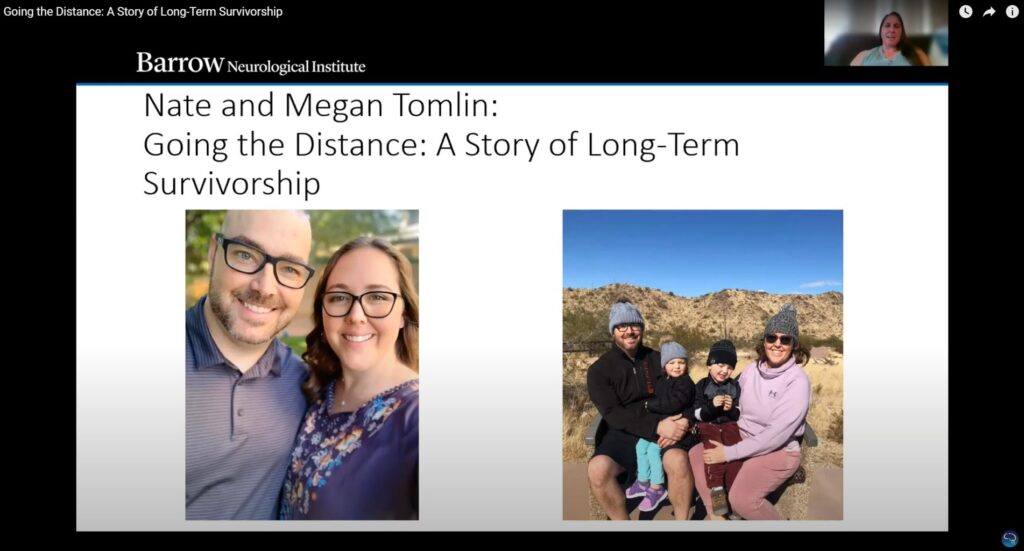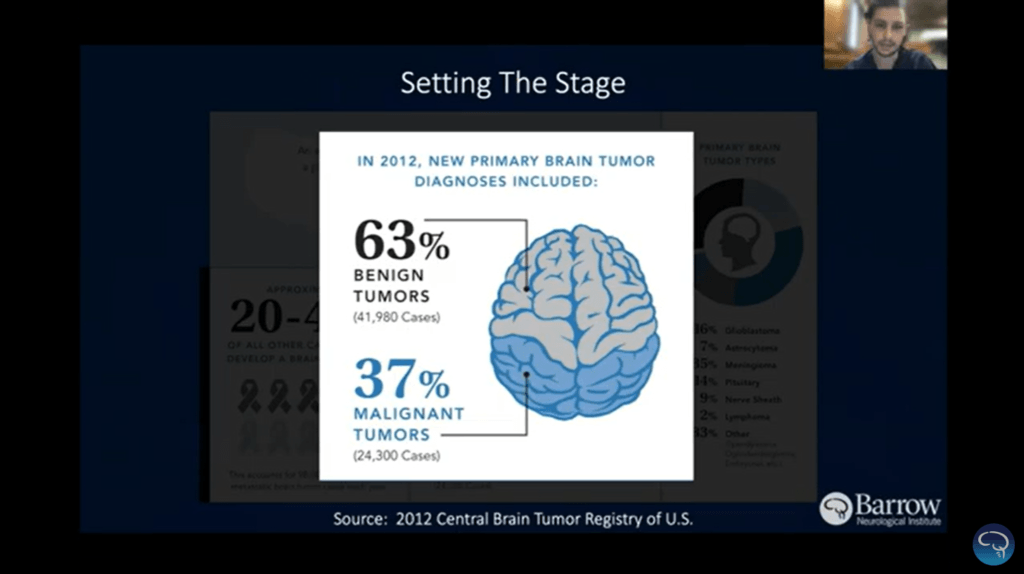
Ivy Blog
Brain Tumor Patient and Caregiver Education
- December 16, 2022
- Ivy Center
- Posted in Patient Support
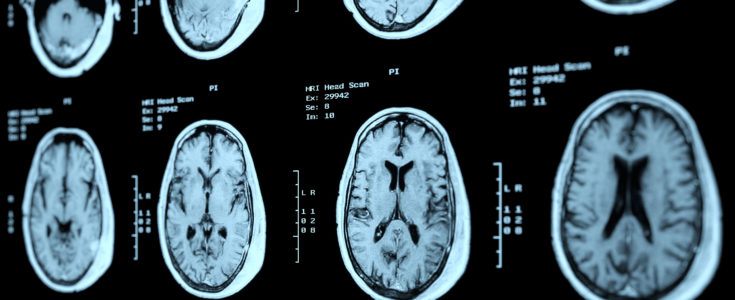
No one should have to cope with a brain cancer diagnosis alone. While each person’s brain tumor experience is different, the feelings of worry, fear and stress are shared by those on the receiving end of the diagnosis. Patients need information and support to equip themselves for the journey ahead. The Ivy Center and Barrow Neurological Institute have created the Brain Tumor Patient & Caregiver Symposium to provide patients and their families with information and support to navigate brain tumor treatment and recovery.
Organized by an Ivy Center Nurse Navigator and featuring a clinician, each symposium video shares the latest treatments, coping mechanisms, symptom management and other educational information.
Check out the Brain Tumor Patient & Caregiver Symposium videos below.
Informing Health: A Guide To Healthcare Information
Finding reliable, trustworthy information online can be a challenge. As a patient or caregiver, you want to educate yourself with the right information, but who can you trust online? “Informing Health: A Guide to Healthcare Information” answers that question. In it, information compiled by Dr. Amy Armstrong from the occupational therapy department on the Phoenix Biomedical Campus at Northern Arizona University is presented by two doctoral students, Cassandra Camacho and Hailee Riddle. They present tips for discerning the information you find online. When reading health information online, ask:
- Who wrote the article? What are their credentials?
- How old is the article?
- Is it asking you to buy something?
- Is the web address a .com, .org, .gov or .edu?
Another helpful tip is to set up a google alert to be notified of any news related to your particular type of brain tumor, cancer or medication. The presentation walks through how to set up those alerts.
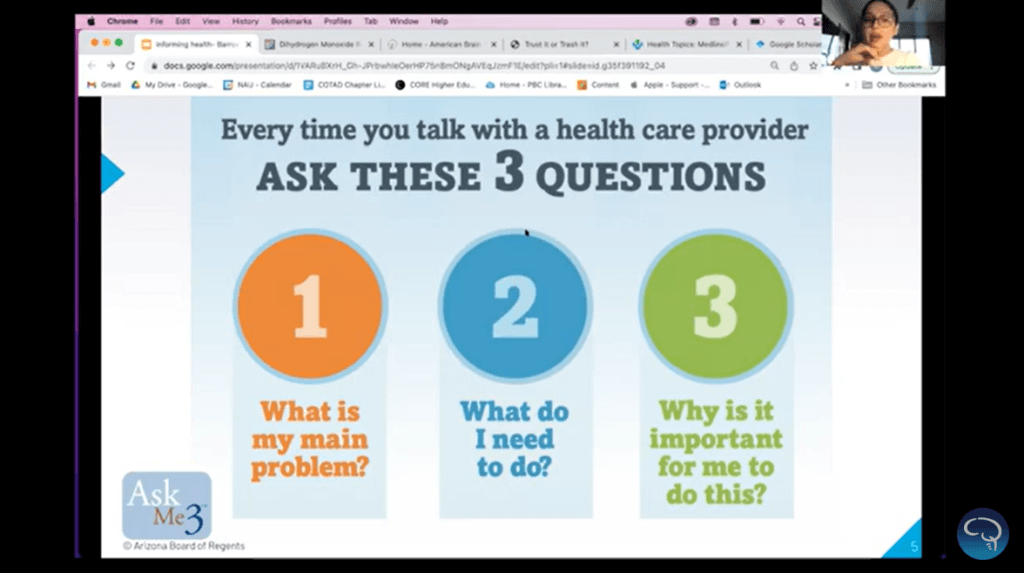
Neurosurgery: A Guide To Brain Tumor Surgery
Surgery is just the beginning of a brain tumor journey, says Dr. Joe DiDomenico, Barrow Neurosurgery Resident. In this video, Dr. DiDomenico walks through the surgery process and explains to patients and caregivers what to expect with every step.
Surgery informs diagnosis, which informs treatment, says Dr. DiDomenico. Neurosurgeons use imaging and mapping tools and delicate instruments to remove as much of the tumor as possible while leaving the surrounding, eloquent areas intact.
“Surgery is climbing a mountain, there’s no question about that. There are other mountains that come after surgery for many diagnoses,” he says. “This is a daunting task for you and your family, but there is beauty in all of it.”
Brain Tumor Symptoms And Treatment
Symptoms associated with brain tumors can show up before diagnosis, after surgery and during treatment. Dr. Ramya Tadipatri, Neuro-oncology Fellow at Barrow Neurological Institute, explains the most common brain tumor symptoms and how to treat them.
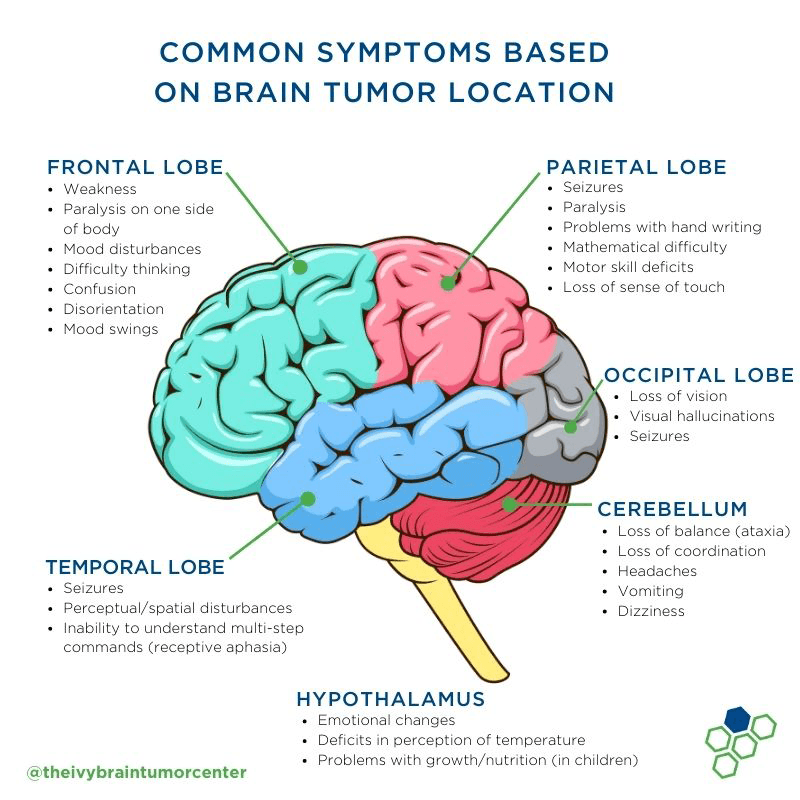
“There can be many different types of symptoms related to brain tumors and their treatment, but we also have many tools to manage them,” Dr. Tadipatri says.
The most common symptoms of a brain tumor are headache, double vision, lethargy, confusion and seizures. Different parts of the brain have different functions and present unique symptoms. Here are some common symptoms depending on the location of the brain tumor.

Radiation Oncology: An Overview
Radiation therapy, like most other brain tumor treatments, is not one-size-fits-all. There are many factors involved in radiation treatment for brain and spine tumors, says Dr. Billy Kennedy, Neuro-Radiation Oncologist at the Ivy Center at Barrow Neurological Institute. Dr. Kennedy describes how radiation works to treat tumors and he walks through each step of the radiation therapy process.
Patients often ask about the difference between chemotherapy and radiation.
Chemotherapy: a medication taken orally or intravenously to damage tumor cells
Radiation: waves or particles of energy sent to a targeted spot to damage tumor tissue
Dr. Kennedy compared radiation beams to spotlights on a stage. One beam of light isn’t very strong on its own, but together all the light beams produce an intense spotlight. The goal is to focus that spotlight, or collective radiation beams, on the tumor while not touching nearby, sensitive areas.
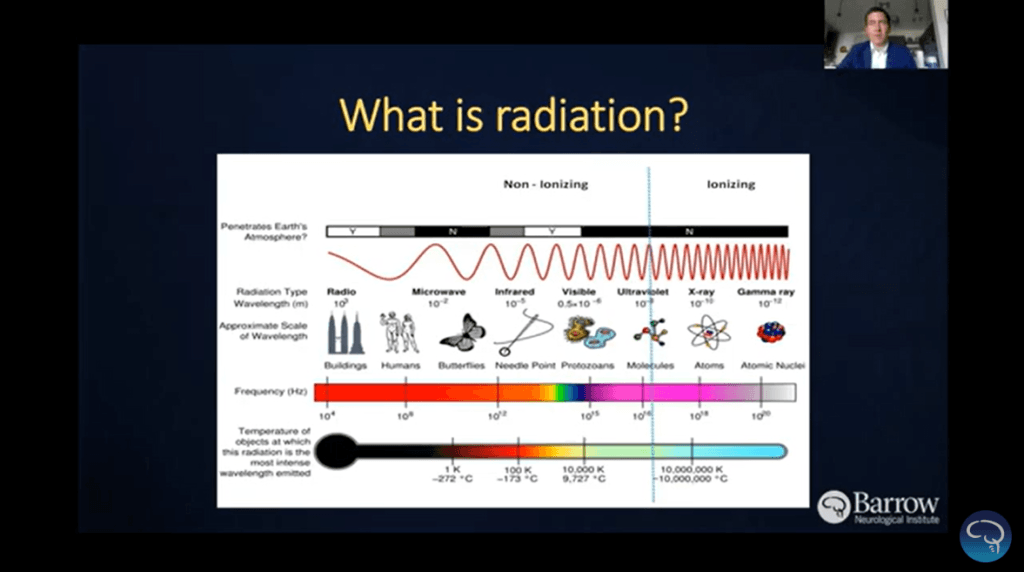
Grit, Grace And Brain Tumors: An Inside Perspective
Ashley Bridwell has the unique perspective of a licensed master social worker at Barrow Neurological Institute and a brain tumor survivor. She was diagnosed with an astrocytoma in her 20s, has undergone surgery and treatment, and lives with various neurological deficits.
Ashley explained what having grit and grace means in the brain tumor journey and why it’s important to have both. Grit is having courage and showing your strength of character. Grace is the disposition to or act or instance of kindness, courtesy or clemency. Here are Ashely’s five tips for building resilience and grace:
- Sit with yourself and your discomfort; feel your feelings
- Engage in self-care
- Make plans with a friend
- Make time for gratitude
- Allow yourself time; be compassionate to yourself
Ashley, who is well-versed in the rehabilitation programs at Barrow, explained the many different options for rehab and therapy and what patients should look for when returning to everyday life after brain surgery.
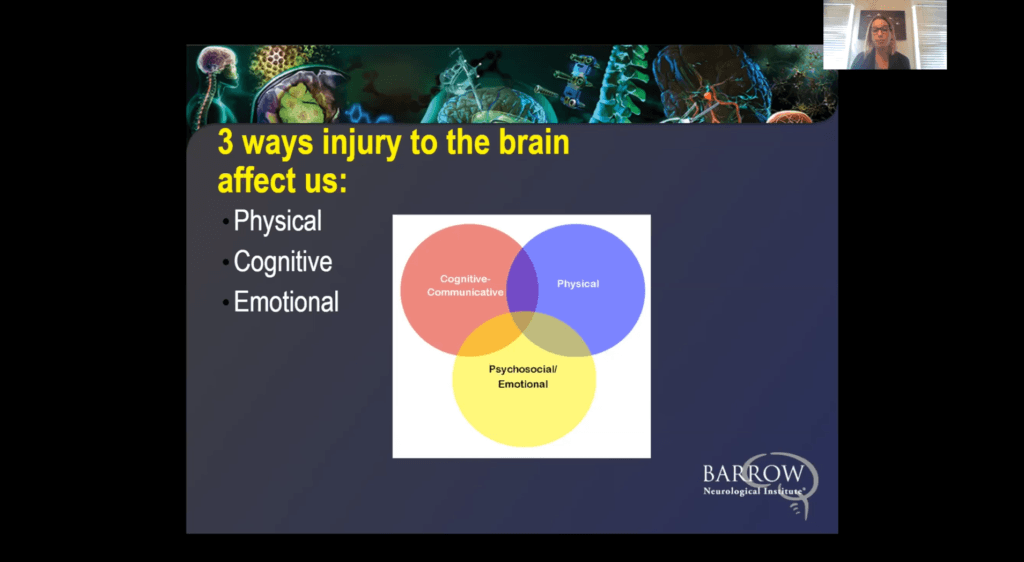
Rethinking Brain Tumor Treatment Through Clinical Trials
Brain tumor patients often find themselves out of options. After standard brain tumor treatment – surgery, radiation and chemotherapy – patients look for other opportunities to fight a recurring tumor. Jocelyn Harmon, Ivy Center Director of Clinical Operations, explains what Ivy Center Phase 0 clinical trials are and how they offer patients different avenues of treatment.
The Ivy Center’s Phase 0 clinical trial program is the largest in the world and the first of its kind in neuro-oncology. These clinical trials offer patients access to experimental therapies, quickly ruling out drugs that don’t work while advancing those that show promise. The Phase 0 model ultimately puts more time back on the patient’s side.
See the Ivy Center’s portfolio of clinical trials and determine if you’re eligible.
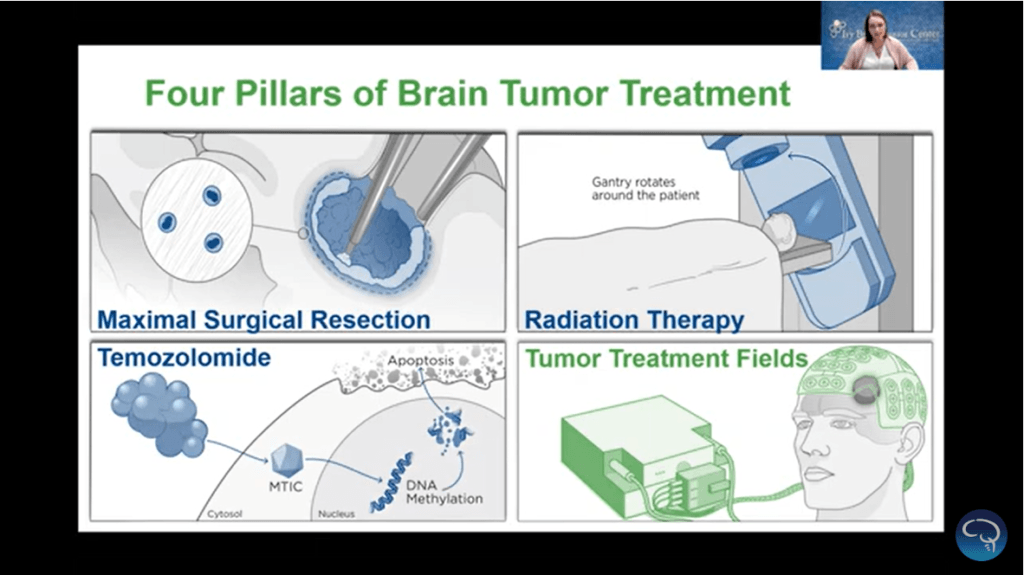
Going the Distance: A Story of Long-Term Survivorship
“If the cancer is going to fight, I’m going to fight harder,” said Nate Tomlin, an Ivy Center patient and longtime-glioblastoma fighter.
Nate battled brain cancer for eight years, undergoing three surgeries and countless treatments, and sadly, he passed away earlier this year. Nate and his wife, Megan, presented their story giving tips for dealing with the diagnosis, participating in rehab after surgery and managing treatment effects. Their presentation, called, “GBM – A Love Story,” shares how they got married and started a family during Nate’s treatment. Their journey, Megan said, “Is a reminder that beauty and love can be present even in the midst of struggle.”
